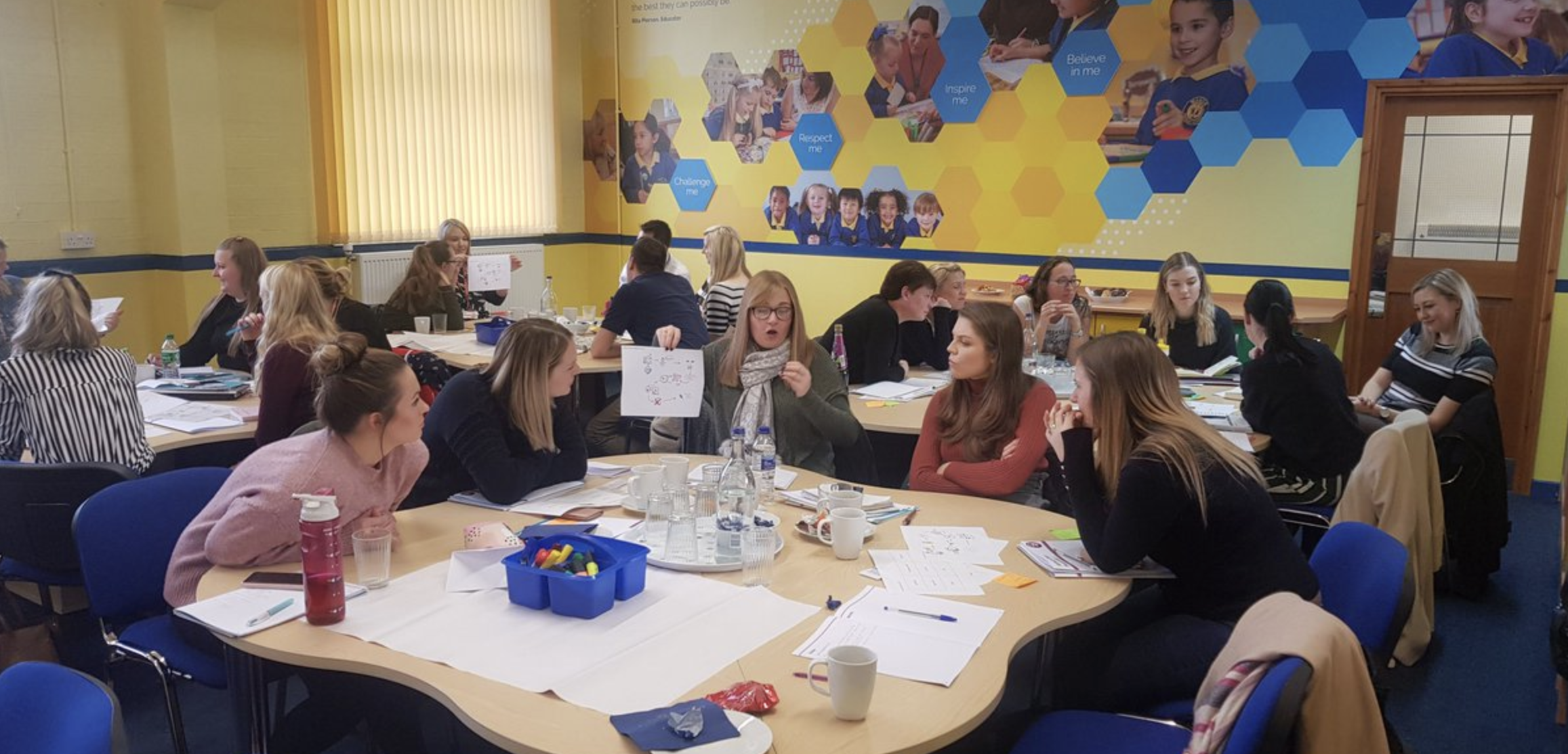June 2020

In September 2019, year one of Voice Black Country, a two-year project working with schools and teachers across the Black Country, began.
The figures were incredible: 27 schools, 51 teachers, and 18,354 children would be involved in an initiative to improve the quality of talk in classrooms across the four boroughs of the Black Country: Dudley, Sandwell, Walsall, and Wolverhampton. A steering committee was commissioned to oversee the project, a group which consisted of the most organised and strategically thinking professionals I’ve ever worked with.
The collaborative instinct in the first cohort of schools has been incredible. We spread the training venues across the Black Country to ensure fairness, and it was evident from the first Voice 21 sessions that the positive chemistry between the schools was going to be a major factor in the success of the project. Voice 21’s training has been expertly facilitated and the materials are ‘oven ready’. I always say that good CPD should be challenging without being overwhelming, familiar without being repetitive, and offer at least one idea that can be incorporated immediately into lessons. Voice 21’s CPD does all these things. Furthermore, we were all really excited by the introduction of the oracy benchmarks which provided a practical framework to take back to schools.
When we talk about talk in the classroom, we include all stakeholders. I’m not going to bang the oracy drum: we all know about the importance of equipping children with the relevant skills and knowledge that enables them to become more confident speakers. This, along with a metalanguage of oracy to encourage self-reflection, self-assessment, and self-improvement, provide rich rewards. But look, teachers are on their knees with the weight of new initiatives and chucking a new one at them is not much fun for anyone. However, what has been magical about the Voice Black Country project is the ways that teachers have embraced oracy because they don’t see it as an add-on to their planning. In fact, it is planning.
From my very first year as an English teacher I used to begin my planning by thinking about what children would talk about in my lessons. This was tied inextricably to the knowledge and skills I wanted them to acquire and I’m certain that this helped my teaching to become more effective. And so, central to the work we’re doing in our schools is to make it clear that oracy isn’t an add-on, but a vital, intrinsic part of the process of learning.
This was evident in the feedback from the various members of the steering group. Whilst each school was at a different stage of the oracy continuum, the comments from delegates at the Voice 21 sessions continued to show how oracy was impacting upon their teaching and learning. Whether it was one or two teachers beginning to influence departments, or whole school strategies that incorporated oracy into their improvement plans; whether it was the enthusiasm generated from using a listening triad for the first time or the dynamics of an interactive assembly; or whether it was the opportunity for children to use sentence stems or for oracy benchmarks to be written into oracy progression plans: each story was a success, and made the initiative worthwhile.
But in the seventh month, there was a global pandemic…
If there is one thing that scuppers talk in the classroom, then it’s the lack of a classroom. However, we’ve managed to keep the oracy fires burning through Voice 21’s excellent on-line classrooms and training sessions via Zoom. More importantly, the COVID-19 situation has made us all think about how we can continue to encourage oracy online.
Talk on Zoom requires a whole new set of conventions. Turn-taking, for example, requires some patience, and we’re learning to encourage a few seconds of silence after each contribution to provide time to think, respond, and to avoid overlapping utterances. The use of pictograms/emojis and chat-boxes all help to supplement the conventional verbal cues to facilitate efficient discussions, but there are still awkward silences, multiple overlaps, and moments when you catch participants in the act of checking their phones: and that’s just at the teachers’ meetings!
If we are to adapt to some kind of ‘new normal’, then we need to explore ways to improve the effectiveness of online oracy, not least in ensuring that all children can access the technology in an efficient and affordable way. At Stour Vale Academy Trust, we’ve already included sessions on online learning for our ITT and NQT programmes, and across the country, as I write, children are being shown how to adapt to this new way of learning.
Personally, I am immensely proud of the way that teachers have risen to the challenge of online learning and, as a profession, we have proven worthy of that epithet of ‘life-long learners’ that we frequently use to describe ourselves. We will continue to innovate, that’s the nature of our profession.
Voice Black Country continues apace. We’re already planning for our second year of work with Voice 21, and we are looking to involve more schools to widen the collaboration in September.
Want to find out about how we can support your school to develop your approach to oracy teaching and learning? Find out how you can work with us here!
© 2022 Voice 21. Voice 21 is a registered charity in England and Wales. Charity number 1152672 | Company no. 08165798